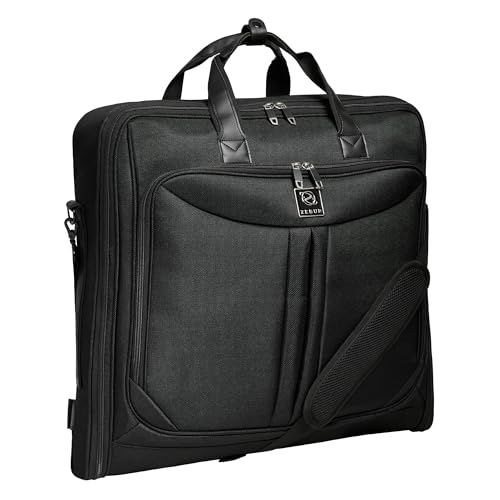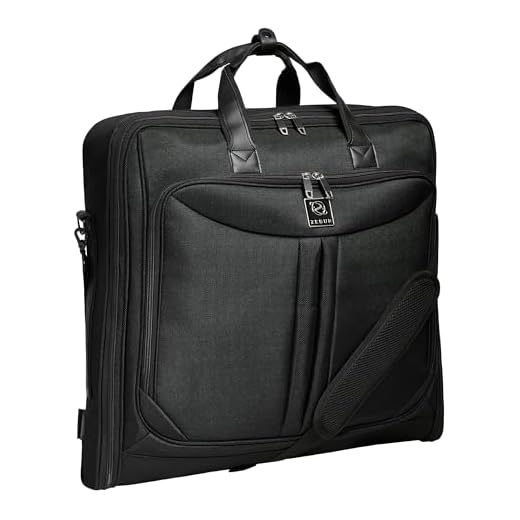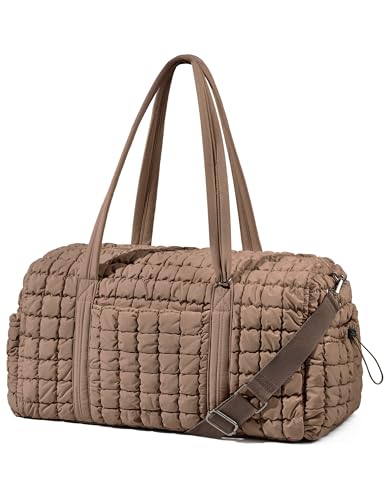
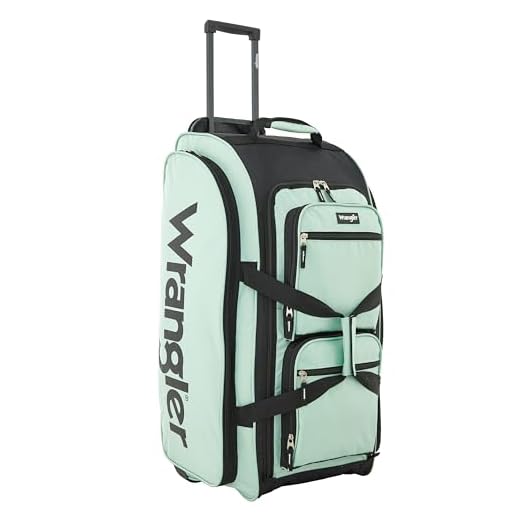
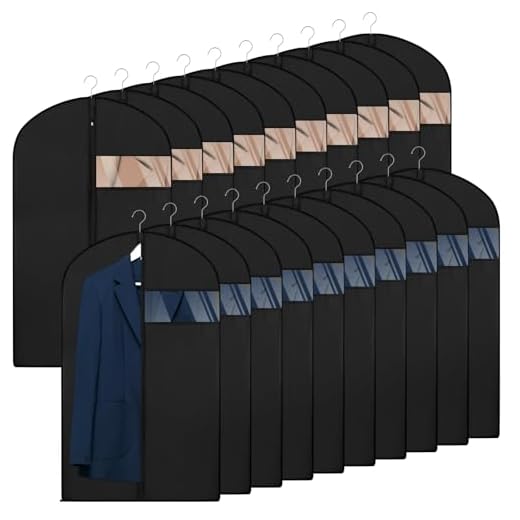

Begin by laying your formal wear flat on a clean surface. Fold the jacket carefully, bringing the sleeves inward to prevent creasing. Next, layer the trousers on top, ensuring that the crease aligns neatly. This technique minimizes wrinkle formation during transit.
For additional protection, place a lightweight garment bag over the folded outfit. This helps in avoiding friction and provides a barrier against dirt. Carefully roll the ensemble starting from the collar down to the hem, maintaining a snug fit to reduce space and movement.
Position the rolled attire in the center of your travel holdall, followed by soft items such as shirts or undergarments around it, ensuring that no sharp edges are pressing against the formal wear. This arrangement cushions the delicate fabric, preserving its pristine condition during your journey.
Finally, close your holdall with care, ensuring that it’s securely fastened. This method not only protects your attire but also maximizes space for additional items you may need for your trip.
Packing Formal Attire in a Travel Carrier
Begin with a high-quality garment bag or a spacious holdall designed to accommodate your clothing. Lay the jacket flat, buttoned up, and place it inside, ensuring that it remains unwrinkled.
For trousers, fold them carefully by aligning the legs, then drape them over the jacket’s shoulders, or if space permits, place them flat on top. Consider using tissue paper between layers to reduce friction and minimize creasing.
Include a dedicated pocket for accessories such as ties, belts, and cufflinks. Organize these items in a small pouch to keep them secure and easily accessible.
To further protect your garments, utilize vacuum storage bags for any additional pieces, ensuring that air is removed to decrease volume and limit movement during transit.
Maintain the shape of your attire by strategically placing rolled-up socks within the jacket sleeves or pockets. This not only provides support but also saves space.
Finally, make sure that the holdall is not overly stuffed. A well-balanced carry will prevent unnecessary shifting and help to preserve the integrity of your formal wear throughout your travels.
Choosing the Right Duffel Size for Your Attire
Select a carrier with dimensions that accommodate your clothing without excessive compression. Ideal sizes typically range from 50 to 65 liters to ensure adequate space.
Key Factors to Consider
- Length: A length of at least 24 inches is recommended to prevent wrinkles and creases.
- Width: Ensure a width of around 12 to 18 inches for better organization of your garments.
- Height: Opt for a height that allows enough vertical space to stack items neatly.
Evaluate how many pieces you need to store, as well as additional items like shoes and accessories. A compartmentalized design can further aid in organization.
Material and Construction
- Durability: Select a sturdy fabric, such as canvas or ballistic nylon, to withstand travel wear.
- Water Resistance: Consider a waterproof option if you expect exposure to rain.
- Weight: Lightweight carriers can reduce your luggage load, leaving more room for your attire.
Adequate ventilation in the design helps to maintain freshness. For a quick solution to unexpected weather changes, consider adding a best auto open umbrella factories item to your travel essentials.
Preparing Your Attire for Transportation: Folding Techniques
Begin with smoothing out your clothing on a flat surface. Lay the jacket facedown, aligning the shoulders. Fold the arms back, tucking one sleeve over the other, creating a neat rectangle. This helps prevent creasing.
Pants Preparation
For the trousers, fold them in half lengthwise, matching the seams. Create a fold from the waistband down to the hem, ensuring they lie flat. This technique minimizes fabric stress and keeps them crisp.
Final Arrangement
Once folded, place your attire inside the chosen vessel. Layer with lightweight fabric, like a t-shirt, to provide cushioning. Including this can mitigate wrinkles and keep everything orderly.
| Item | Folding Method |
|---|---|
| Jacket | Face down, arms folded back |
| Trousers | Half-lengthwise, fold from waistband |
For quality options, explore the best luggage for business woman to ensure optimal transport of your attire.
Using Garment Bags or Wrappers for Protection
Utilize a garment bag to shield formal attire from wrinkles and potential damage. Opt for a lightweight, breathable fabric that allows air circulation while preventing creases. Ensure the garment bag is spacious enough to accommodate the outfit without excessive folding.
Choosing the Right Type
Look for options with padded shoulders to maintain structure, and zippers for ease of access. Wrapping attire in a layer of plastic or tissue before placing it in a garment bag can provide additional protection against moisture and dirt. Be mindful of the garment’s fabric: delicate materials may require extra care.
Storage Tips
For longer journeys, consider wrapping items in a thin layer of dry cleaning plastic for added protection against dust. This technique also aids in reducing friction during transport. For further practical insights, explore topics unrelated to clothing protection like are siemens fridge freezers any good. Keeping your garment bag clean and organized fosters a more pleasant travel experience.
Arranging Accessories Around Your Suit for Efficiency
Position lightweight items such as ties, belts, and socks in rolls to maximize space. Rolls fit snugly into corners and gaps, preventing bulk and maintaining balance.
Place your tie flat against the internal lining of the carrier. Ties can easily be creased, and a flat position reduces this risk significantly.
Utilize pouches or small organizers for toiletries or grooming products. Keeping these items separate avoids any spills or damage to your formal attire.
Include a protective cover for polished shoes to safeguard your clothing. Slip shoes into a shoe bag or wrap them in a dedicated cloth to prevent scuff marks.
Consider folding cufflinks, watches, or other jewelry within a soft pouch where they won’t jostle. This keeps them secure while allowing easy access upon arrival.
Incorporate a compact garment carrier for additional formal wear if necessary. This ensures that each item stays wrinkle-free and ready for use at your destination.
Lastly, create a checklist of your must-have items. This not only streamlines the packing process but also ensures no essential accessories are overlooked.
Avoiding Wrinkles: Additional Packing Tips
Incorporate tissue paper or plastic dry-cleaning bags between layers of fabric to diminish friction. This subtle barrier aids in minimizing creases during travel.
Utilizing Compression
Place heavier items at the bottom and utilize compression straps on your carrier to maintain structure. These straps help keep your garments secure while optimizing available space.
Heat Protection
Before folding, let garments rest for a few hours, allowing any existing wrinkles to loosen. Always store in a temperature-regulated area away from direct sunlight, which could cause fabrics to fade or deteriorate.
Unpacking Your Attire: Reviving It for Wear
Immediately hang the clothing upon removal from its containment. This helps to reduce creasing and allows fabric to regain its structure quickly.
Steaming for Freshness
Utilize a garment steamer, keeping it at least six inches away from the fabric. This relaxes fibers and smooths out wrinkles effectively. If a steamer is unavailable, a hot shower can serve as an alternative. Hang the garment in the bathroom, letting the steam work its magic.
Utilizing a Clothing Brush
Gently brush the exterior with a clothing brush to remove dust and lint. This step enhances appearance and prepares it for wear. Ensure the brush bristles are soft to avoid damage.
- Start from the top and work downward.
- Brush in the direction of the fabric grain.
After brushing, check for any discernible stains. Treat spots immediately with appropriate stain removers, following the manufacturer’s instructions.
Final Touches with an Iron
If necessary, deploy an iron on a low setting while placing a clean cloth over fabric. This additional step ensures a polished look without damaging the fibers.
- Ensure the iron is clean to avoid transfer marks.
- Test the temperature on a hidden area first.
Before dressing, inspect the overall appearance. Ensure it is free from residues and looks crisp. These methods help ensure readiness for any occasion.

